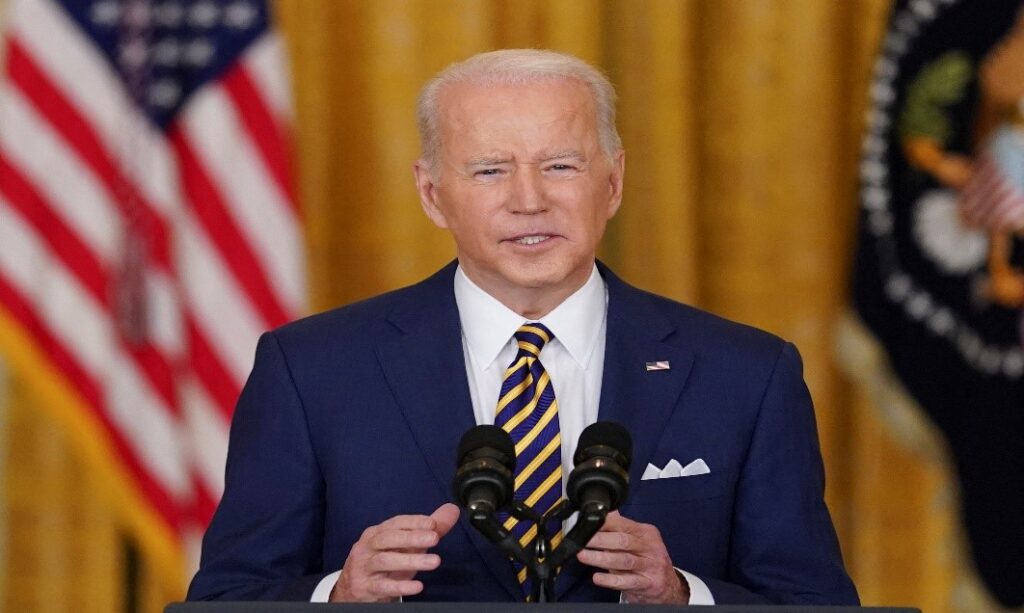Prof. Mohammed Badrul Alam
26th January 2022

With Joe Biden as the 46th President of the United States of America, completing the first year of his presidency and administration on January 20, 2022, it is imperative to assess and evaluate the accomplishments, setbacks and the challenges ahead.
To put it in context, the presidential election of 2020 was one of the closely contested elections in contemporary American political history. Biden won by garnering 306 Electoral College votes as opposed to Trump’s 232. But the official result took several weeks as counting and re-counting of votes took place across crucial battleground states such as Pennsylvania, Georgia, Arizona and North Carolina. That the Trump team was not ready to throw in the towel showed the robustness and feistiness of the muscle and might of the Trump machine that was a significant force to reckon with in the highly split political divide of the great American Republic.
The chaotic transition from the Republican Trump Administration to the Democratic Joe Biden Administration was marred by the conspicuous absence of President Donald Trump at the January 20 inaugural ceremony and related events. It is important to note that the Capitol Riots and insurrection of January 6 shook the democracy watchers all around the world in a state of shock and disbelief. This episode had eerie resemblance to the spectre of 1863 Civil War in which the then 16th President Abraham Lincoln with grit and determination led the heroic effort of the triumph of Union armies over the Confederacy forces and in providing the forceful speech of unification at Gettysburg.
The event of January 6 riot proved two glaring aspects of American democracy. One, the American society instead of it being a Melting Pot, is steadily and increasingly been shifted into a Salad Bowl, deeply divided and polarised across race, class and ethnicity. And, two, the Trump Coattail, though down, is still not out from exerting substantial influence in the vast heartland of the United States and across its various regions.
As per the proverbial honeymoon that is usually accorded to any incoming US President, in case of President Joe Biden, one can clearly discern two segments, the pre-Kabul fiasco phase and the Post-Kabul one, meaning the first six months of his presidency and the Post-August scene. The second half 2021 has been marked by major cries such as Putin and Ukraine, Jinping and Taiwan/Hong Kong/South China Sea, Iran Nuclear talks, North Korean missile scene, France and its unease over AUKUS, and not the least, Covid-19 and its deadly variants, Omicron and Deltacron. Biden’s handling (or, mishandling) of each of these crisis situations has shaped the contours of Biden’s first year in office.
On the plus side, Biden have some notable achievements in 2021. One, as part of the Covid package of 1.9 trillion dollars, millions of people got themselves vaccinated. By one estimate, while less than 1 percent of population had taken the Covid shot by the time Trump left, by early 2022, some 200 million people have taken the Covid shot including the booster ones. Efforts are underway to get more people vaccinated to thwart the spread of Covid and its variants. Second, , the bipartisan package of Infrastructure bill worth 1 trillion dollars has paved the way for major overhaul of US highway roads, bridges, schools, community centers, etc. Third, the low employment rate sliding down from 6.4 percentage to 3.9 percentage within a year resulting in a record number of close to 7 million new jobs seekers joining the work force. Fourth, Biden was also successful in appointing a record number of 41 federal judges that includes 80 percent females and 53 percent from people of color. Fifth, under the Biden Administration, for the first time, people from the transgender category were inducted into the US Army thus making it more diverse and inclusive. And, sixth, the President scored a major victory in the two Georgian runoff elections for the two incoming Senate seats and both the seats were won by the Democrats thus enabling the Democrats to have 50-50 equation in the influential US Senate and where Vice President Kamala Harris has the right to cast the tie breaker vote, in required and needed.
On the downside, the Biden Administration has some setbacks as well. The manner in which the US Army evacuated in Kabul in a hurry thus creating a power vacuum and the rapid takeover by the Taliban has left many critics to question the nature of Biden Administration’s strategic approach in a vital geographical region of the world. Second, the rise in inflation rate to 7 percent could cause economic hardship in the months to come. Unless the inflation rate comes down, this issue has the potential to cause possible loss to Democrats in the mid-term Congressional election in the November 2002. Third, the ‘Build Back Better’ legislation worth a mammoth 1.75 trillion dollars is yet to see the light of the day. Unless Biden is able to convince his two Democratic Senators, Joe Manchin of West Virgin and Kyrsten Sinema of Arizona, to his side, this big agenda item might be in a state of limbo.
A week is a long time in politics. There are still nearly three years to go of the Biden Presidency. Not all things are ‘doom and gloom’ as the naysayers are predicting. Nor, it is ‘Happy Days are here Again’ as was in FDR days after the Great Depression. It is still possible to argue that Biden might rebound by staying focused, working tirelessly and with some divine luck to his side and the administration.
*The Author is Professor (Retired), Department of Political Science, Jamia Millia Islamia University, New Delhi, India
Disclaimer: The Views in the Article are of the Author
This expert opinion is a part of the KIIPS special series on President Biden’s first year in office from an Indian perspective
![]()

